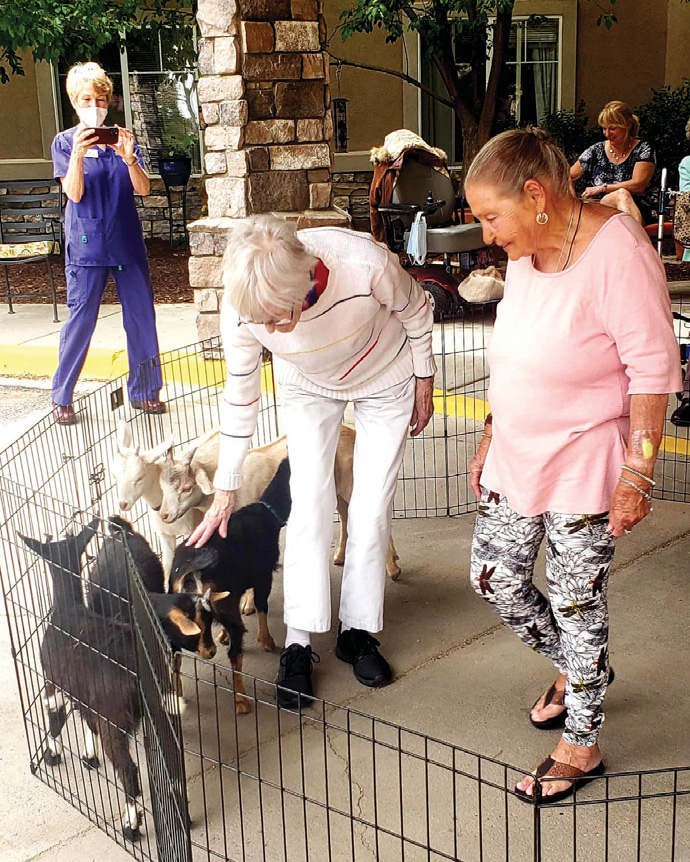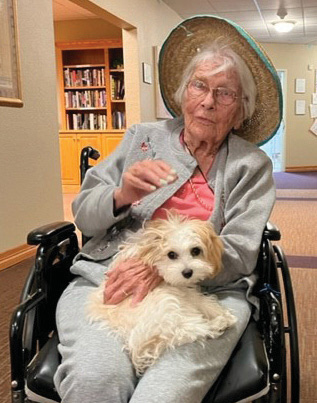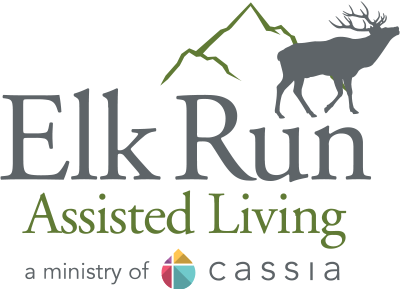Do you have an animal companion in your life—a favorite pet who brings you joy every day? A new study conducted by the University of Michigan found animals who live with us for five years or longer can help delay aging in the brain for adults who are 65 and older. The study was presented at the American Academy of Neurology’s Annual Meeting in April, 2022.
Studies suggest that close bonds between people and their pets may have significant health benefits

Previous studies implied that the bond between humans and animals may help decrease blood pressure and stress, according to Dr. Tiffany Braley, the University of Michigan study author. The new study mentioned here indicates that owning a pet may also protect against cognitive decline.
Another study published in 2019 by the American Heart Association shows dog ownership was connected to a 33 percent lower risk of early death for heart attack survivors, and 27 percent reduced risk of early death for stroke survivors. Those who were part of this study were also associated with a 24 percent reduced risk of mortality.
The last study I’ll mention today (published in 2011) quotes researchers from Miami University and Saint Louis University. Researchers learned people who live with cats, dogs and other animals had greater self-esteem, less loneliness, were more physically fit, less stressed and less fearful.
Visiting animals can play a significant role in people’s lives
Studies like these make us happy to see residents with animal companions at Elk Run. However, not everyone has the ability or desire to take care of an animal, as much as they might love them. In that case, visiting animals can play a significant role in people’s lives.
We enjoy the company of therapy dogs that visit regularly
At Elk Run, we enjoy the company of therapy dogs that visit regularly. We have been fortunate that owners of therapy dogs and other pets have connected with us and enjoy bringing their pets to our community. Once a week, we are usually visited by dogs of all breeds and kinds, including an Australian Cattle Dog and a Great Pyrenees that looks like a small bear.
Residents love greeting the animals—and the animals love them back. Director of Therapeutic Activities Barre Shannon McKee is working on getting more time with animals so staff can go door-to-door with visiting dogs and see residents individually. In addition to visits from therapy dogs, Elk Run hosted a visit with baby goats this summer, which brought smiles to the faces of numerous residents.
Many residents and families ask us about the difference between therapy and service animals and how they differ from personal pets. Let’s start by talking about therapy animals and pets who live with people.
A personal pet is usually part of an individual’s family. Because both the individual and pet live together, they have the opportunity to get to know each other’s quirks and preferences. Being together on a frequent basis means they tend to be close friends who may walk, eat, sleep and play together.

Therapy, support and comfort dogs may also be pets, but often therapy dogs provide comfort and affection to those who are in hospitals, assisted or independent living settings, memory care, skilled nursing, schools or hospice settings. They may be trained and certified by excellent organizations, but are not trained to perform specific tasks for people with disabilities.
Therapy dogs provide comfort and affection
When invitations to therapy dogs are extended, they are at the discretion of the organization that is hosting them. A person accompanied by a therapy dog would be able to stay in a pet-friendly hotel, and would likely have to pay an additional charge for the pet’s accommodations.
Service dogs have been individually trained to perform services for people with disabilities
Service dogs, on the other hand, are defined under the Americans with Disabilities Act (ADA). A service dog has been individually trained to perform services for people with disabilities. The tasks that service dogs perform must be related directly to an individual’s disability.
It’s worth pointing out here that the ADA protects the rights of those with disabilities to access public places such as restaurants, hospitals, theaters, stores and offices with their service dogs. While a hotel that prohibits pets can stop someone from entering with a therapy dog, a person with a service animal may not be prohibited from entering with the animal.
However, a person whose service dog damages the premises of a hotel, restaurant or other building would be liable to pay for repairs. Hopefully, though, no damages would happen!
If you don’t have an animal friend in your life, you might want to try being a pet sitter on occasion or volunteer at an animal shelter. Whatever stage of life you are at, it’s a safe bet that animals can enhance the quality of life for you or a loved one. In my opinion, the unconditional love animals offer us is one of life’s greatest pleasures—and rewards. If you are interested in visiting Elk Run with an animal companion, we’d love to talk with you! Please contact Barre Shannon McKee at Barre.McKee@cassialife.org or call 303.376.2723

